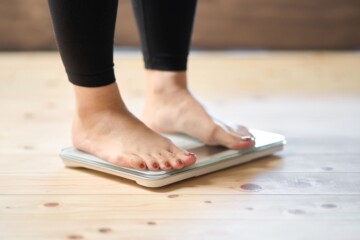When you reach your 30s you might start considering the role that age has to play in your fertility. The cause of infertility tends to be split evenly, 50/50 between men and women, so it is beneficial to make healthy changes to improve your fertility now.
If you are a woman, it is important to be aware of your fertility as you get older. Women are born with all the eggs they’re ever going to have, so as they get older, the quantity and quality of eggs being released declines until they reach menopause where natural conception becomes impossible.
On the other hand, men with no underlying conditions can produce sperm within the testes throughout their life. Although sperm quantity and quality may reduce with age, men can still continue to conceive children naturally. However,other factors and age can still affect male fertility.
Top tips for getting pregnant in your 30s
The 6 tips below explain how both men and women can boost their fertility to achieve a healthy pregnancy.
Quit smoking
Men and women who smoke have been shown to be twice as likely to be infertile as those who don’t.
For men, studies show smoking can lead to lower sperm count, reduced quality of semen and impotence (failure to get or maintain an erection).
For women, studies show smoking can reduce the number and quality of eggs released. Smoking is also associated with a negative affect on the womb lining, making it difficult for an embryo to implant. For this reason, smoking can result in an increased risk of miscarriage.
For many an addiction like smoking is difficult to stop, but if you are serious about starting or growing your family, we suggest you quit as soon as you can. Support is available through the NHS, contact your local GP or community for help and advice.
Stop drinking
For women, drinking too much alcohol can cause irregular cycles and reduced ovarian reserve. Like smoking, it is closely associated with an increased risk of miscarriage. For these reasons the NHS recommend you “Do not drink alcohol if you’re pregnant or trying to get pregnant.”
For men, excessive drinking decreases testosterone levels, follicle stimulating hormone (FSH), and luteinising hormone (LH) all of which are needed for sperm production. Studies have also shown that “alcohol intake has a detrimental effect on semen volume”.
If you are trying to conceive, it is best for you and your partner to cut down or where possible stop drinking altogether to eliminate the risk of it negatively impacting your fertility.
Supplements
There are so many fertility supplements on the market that it can feel overwhelming to know what to go with. Most of these supplements are based around the benefits of single ingredients rather than the product as a whole. Impryl is a supplement for men and women and works by providing balanced support to your body’s natural metabolism, using active micronutrients. In this unique way it improves the quality of both egg and sperm cells.
Start your journey with Impryl, today
Relax/reduce stress
According to a 2018 study, “psychological interventions for women with infertility have the potential to decrease anxiety and depression and may well lead to significantly higher pregnancy rates.”
For men, stress is closely associated with reduced sperm quality i and erectile dysfunction (ED) has also been shown to be linked to stress. The NHS website stating that ED is ‘usually caused by stress’. We have covered this topic before in our blog Stress & Male Fertility: What you need to know.
Some ways to cut down on stress include making the effort to spend time with those close to you, cutting down on workload and regular exercise such as walking, yoga or .
Get to a ‘healthy’ weight
Try your best to get your weight in the healthy section of BMI. Being obese is linked to very poor fertility outcomes in both men and women. Conversely, being underweight can also cause complications when it comes to conceiving. Having a balanced diet and focussing on losing weight steadily will give you the best chance of achieving this goal. A great way to supplement weight loss is through exercise.
Exercise
It can often be difficult to find ways to fit exercise in to your daily routine, however it is worth making the time to exercise regularly if you are trying to conceive. This isn’t just about losing weight either, even if your weight is in the healthy range, it is best to be active. It is proven to reduce stress levels and improve mental health which can suffer when struggling to conceive. Being overweight or carrying injuries can cause exercise to be extremely strenuous. If this applies to you then focus on light exercise. Walking, gentle yoga or cycling at the gym are all good entry level options. With exercise it is best to be patient and disciplined, good luck!
If you stick to the tips given above you will give yourself the best possible chance of success. If you have been trying to conceive for over a year, over 6 months, or if you are above the age of 35, you should arrange a meeting with your doctor immediately. From there, they might be able to help you with a diagnosis or could refer you to a fertility specialist for further assistance.








